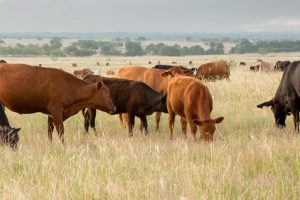
Animal Science is concerned with the science and business of producing domestic livestock species, including but not limited to beef cattle, dairy cattle, poultry, swine, small ruminants (sheep and goats), and rabbits.
The Animal Science Section is concerned with the Science and economics of producing domestic livestock species, including dairy cattle, beef cattle, poultry, sheep, goats, rabbits, and swine. An animal scientist applies principles of the biological, physical, and social sciences to the problems associated with animal production and livestock management. Animal breeding and nutrition play a vital role in general health and animal welfare in the production of safe and quality products of animal origin.
The increasing demand for proteins of animal origin has led to an intensification of livestock production, mainly based on the intensification of pasture production and the use of industrial compounded feeds. This has led to increasing use of selected feed grains and fodder seeds, pesticides, and fertilizers, as well as new and unconventional materials in the production of feed such as biofuel by-products and several other agro-industrial by-products.
In the past years, several contamination episodes have raised attention on the importance of ensuring feed safety and on the need to prevent and control the presence of old and new hazards, such as dioxin, aflatoxins, antibiotics, and other undesirable substances. A better environment and appropriate animal feed are needed to meet the requirements of the animal to explore its genetic and economic potential.
The section has the following units;
What is Animal Scientist
Animal scientists work to understand the biological processes that underlie animal growth, development, and production. They also study the environmental and social factors that affect animal health and welfare, as well as the economic and social implications of animal agriculture. The field of Animal Science comprises a wide range of disciplines, including genetics, nutrition, physiology, reproduction, behavior, welfare, and management.
Frequently asked question: Why are animal resources important?
Animal resources play an important role in human society and have contributed to our development and well-being in many ways. It is important, however, to ensure that these resources are used in a sustainable and ethical manner and that animal welfare is a top priority in all applications.
Animal resources are important for several reasons:
Dr. Athumani Shabani Nguluma is the head of the Animal Sciences section in the Department of Animal, Aquaculture, and Range Sciences.
